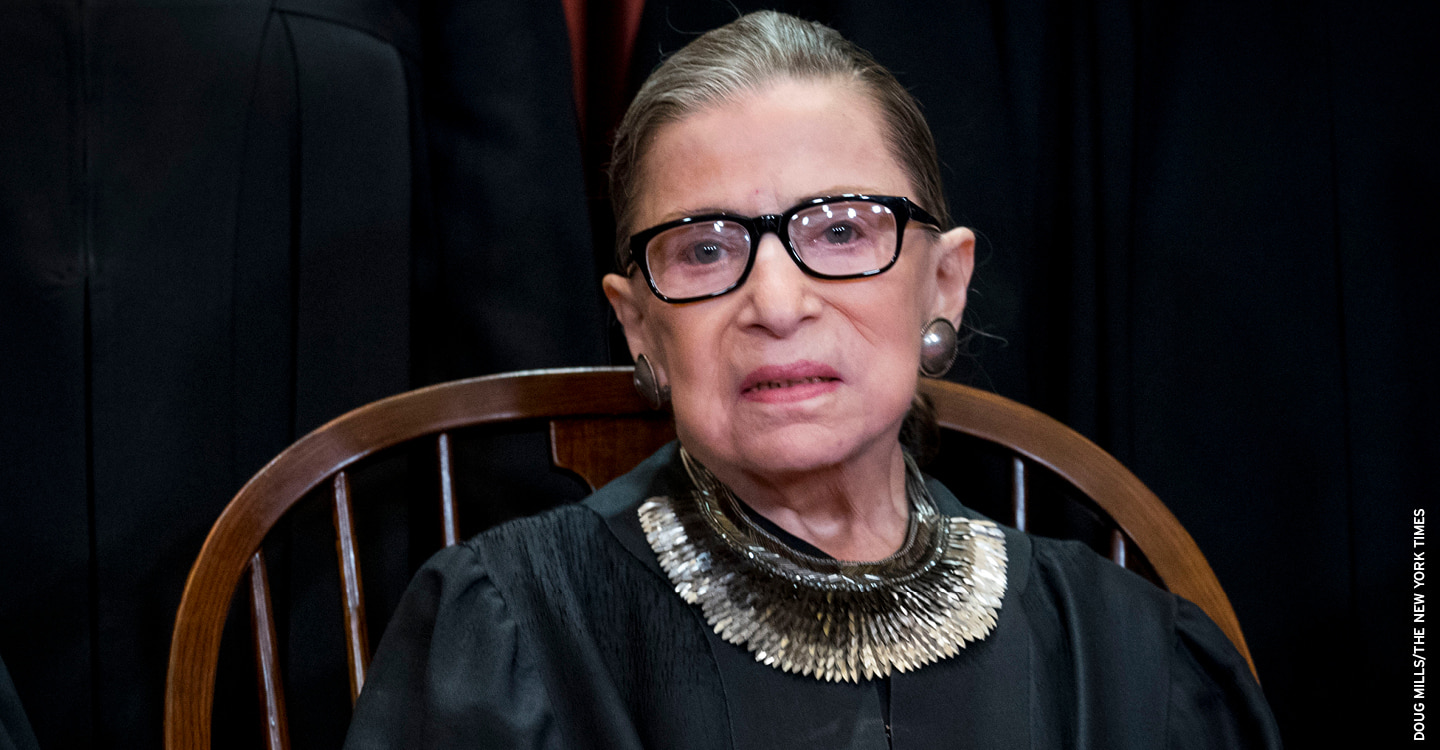On September 18, U.S. Supreme Court Justice Ruth Bader Ginsburg died at her home in Washington, D.C., of complications from pancreatic cancer. She was 87.
Ginsburg served on the Supreme Court for 27 years after being nominated in 1993 by President Bill Clinton, a Democrat. She was the second woman chosen to serve on the Court and has long been an advocate of women’s rights. Over the years, Ginsburg emerged as a champion of progressive causes and became the leader of the Court’s liberal justices. She has spoken out against the gender pay gap, upheld the right of same-sex couples to marry, and voted in favor of protecting all Americans’ right to vote, among other issues.
One of her most famous decisions came in 1996, when she wrote the Court’s 7-to-1 landmark ruling in United States v. Virginia. That ruling struck down the Virginia Military Institute’s policy of only admitting men. Ginsburg wrote that “generalizations about ‘the way women are,’ estimates of what is appropriate for most women, no longer justify denying opportunity to women whose talent and capacity place them outside the average description.”
“Our nation has lost a jurist of historic stature,” Chief Justice John G. Roberts Jr. said in a statement following Ginsburg’s passing. “We at the Supreme Court have lost a cherished colleague. Today we mourn but with confidence that future generations will remember Ruth Bader Ginsburg as we knew her—a tireless and resolute champion of justice.”

